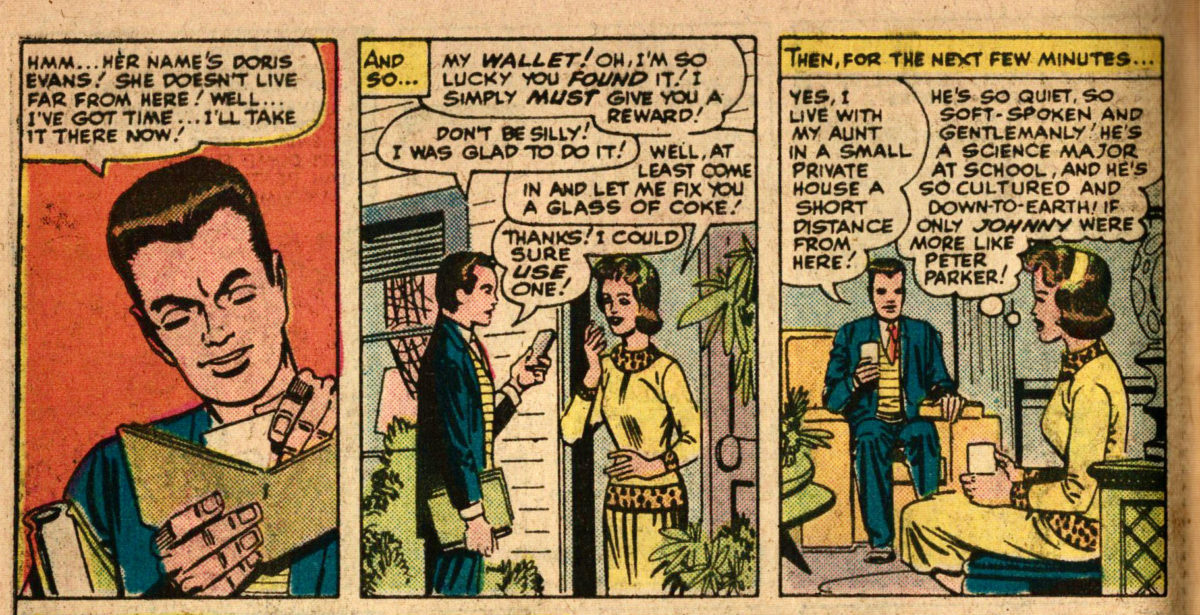Featuring: Spider-Man
Release: July 8, 1965
Cover: October 1961
12 cents
Writing and editing by: Stan Lee
Plotting and drawing by: Steve Ditko
Lettering and loafing by: Sam Rosen
20 pages
| Previous | #433 | Next |
|---|---|---|
| Sgt. Fury #22 | Reading order | Daredevil #10 |
| Amazing Spider-Man #28 | Amazing Spider-Man | Amazing Spider-Man #30 |
I don’t believe in false modesty! The best thing about being a publisher is you can write what you please about yourself!
Again, notice the plotting credit for Ditko. Ditko has plotted every issue and exclusively plotted the last several issues, but Stan is doing better at giving him credit in an attempt at appeasing Ditko’s concerns. It will prove to be too little, too late.

We’ve remarked repeatedly on just how many iconic villains Ditko came up with in a short period of time. By issue 15, we’d met: Chameleon, Vulture, Tinkerer, Dr. Octopus, Sandman, Lizard, Living Brain, Electro, Big Man and the Enforcers, Mysterio, Green Goblin, and Kraven the Hunter. That’s insane. Since then, Ditko has slowed down some, and Spider-Man has had rematches with foes like Green Goblin, Sandman, and Mysterio, while also borrowing foes from other heroes, like the Circus of Crime or the Beetle. However, we’ve still gotten some good creations in the latter half of this series, including Scorpion, the Spider Slayer, and just last issue, the Molten Man.
Ditko is basically done with creating cool iconic villains for Spider-Man. He’ll create a few more villains, but they won’t fall anywhere near the iconic camp: the Cat, the Looter, Robot Master… Otherwise, he’ll just have Spider-Man fight the villains he already has. Hence, this issue is a rematch with the Scorpion. The series is winding down. Ditko is winding down. He has one great Spider-Man story left in him, and then it’s time to say goodbye.
This issue is treading water. It’s still well told. Ditko’s a good storyteller and can churn out a solid action yarn. But we’re basically biding time.
Continue reading “Amazing Spider-Man #29”











































